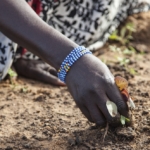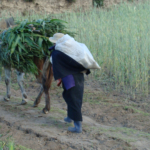


Association Malienne d'Eveil au Developpement Durable
AMSP, UACT & Cooperative for sustainable management of agricultural biodiversity in Mali (GDBA Mali)
Mali
11/2014—11/2017
For the past 15 years, several regional farmers’ organizations, in partnership with researchers and development stakeholders, undertook actions and received training on participatory variety selection of staple crops, decentralized seed production, and participatory agricultural systems research. The project will strive to promote the exchange of knowledge and expertise between farmers who participated in these programs and those who have not benefited through creation of a farmer network. The overall goal is to contribute to the improvement of agricultural productivity and food security of rural families through increased learning in farmers’ networks on innovations and participatory research methods.This farmer-led project will explicitly consider intensification of cereal-legume production systems in Mali and Burkina Faso. It is women-inclusive. The envisaged multi-stakeholder platforms have the potential for high impact regarding learning and farmer adaptation of new technologies that might contribute to agroecological intensification. The training of two students will strengthen local scientific capacities for engaging in and supporting such networked, farmer-led research.
The purpose of this request is to create and develop a case for a farmer research network (FRN) in West Africa. This farmer-led project will explicitly consider intensification of cereal-legume production systems in Mali and Burkina Faso. The project is inclusive of women. It will build on previously CCRP- funded partnerships and CCRP-supported farmers’ organizations. The envisaged multi-stakeholder platforms have the potential for high impact regarding learning and farmer adoption of new technologies that might contribute to agro-ecological intensification. The suggested training of two students will strengthen local scientific capacities for engaging in and supporting such kind of networked, farmer-led research. “Scaling-up” actions will be undertaken through training of trainers and the inclusion of new farmers’ groups with specific interests associated with the platforms into the network.

